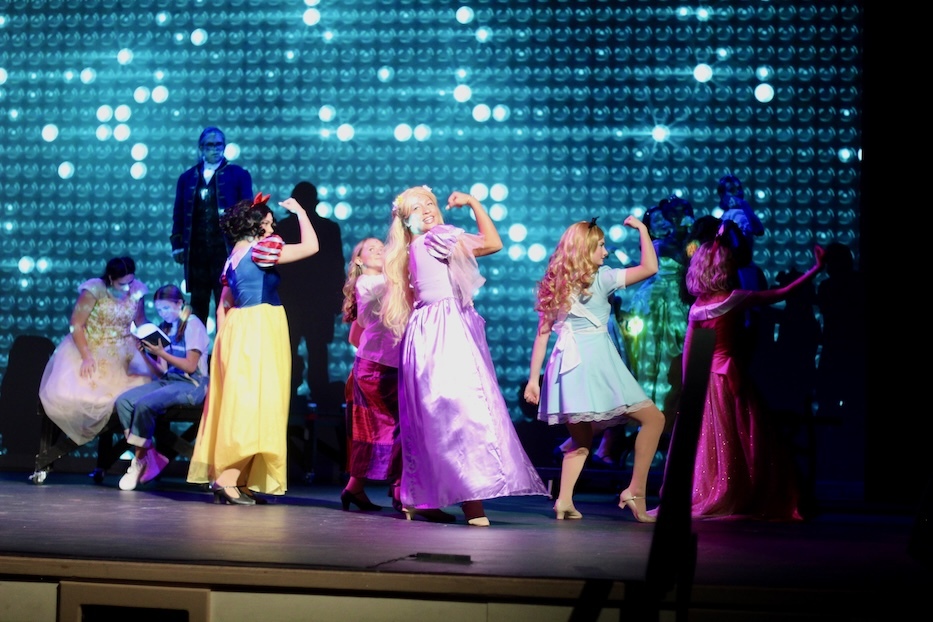
Culture & Community | Arts & Culture | Musical Theater | Shubert Theatre | Sacred Heart Academy
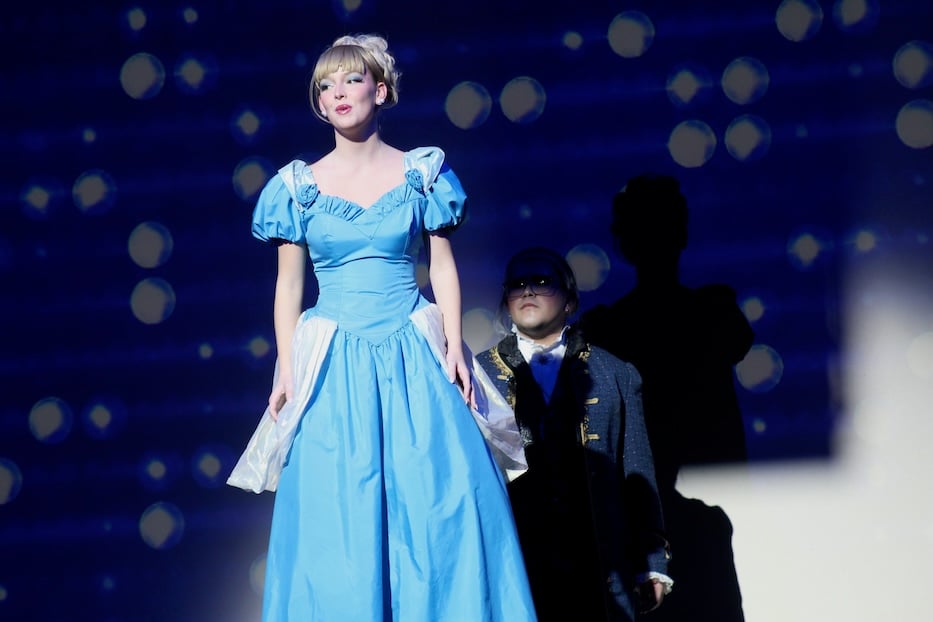
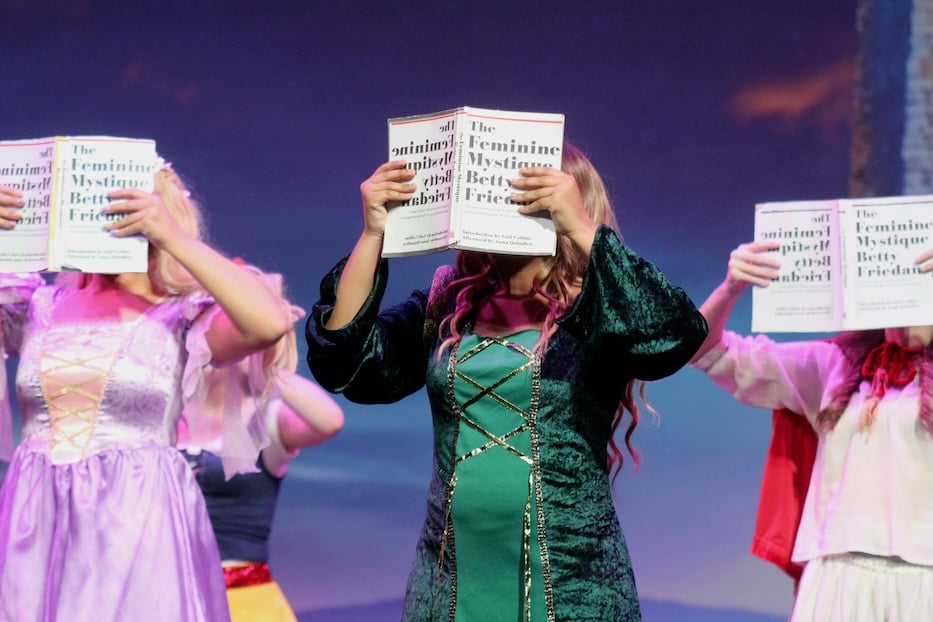
Lucy Gellman Photos.
Onstage, Cinderella was all about The Feminine Mystique—and she was bringing her royal entourage with her. To her right, Rapunzel cracked a copy open and started reading, the words crisp on the page. Princess Pea bounced to the beat, a tome suspended gingerly in her hands. Somewhere in the middle, even the Little Mermaid had found her voice.
“I-I-I wanna go-o-o all-the-way-y-y/screamin’ out my dreams tonight!” bellowed a chorus of countesses, their synchronized moves taking up the whole stage.
Listen. If Betty Friedan and Britney Spears are the way we get to bell hooks and Audre Lorde, bring it on. The revolution has to start somewhere.
A sweet, mellifluous sense of girl power radiates through the East Coast Premiere of Once Upon A One More Time, a jukebox musical based on the music of Britney Spears that comes to the Shubert Theatre through Sacred Heart Academy (SHA) this weekend. Directed by MaryLee Delaney and produced by Kim Curbow, the work turns the idea of happily ever after on its head, offering an upbeat and feminist rewrite in its place.
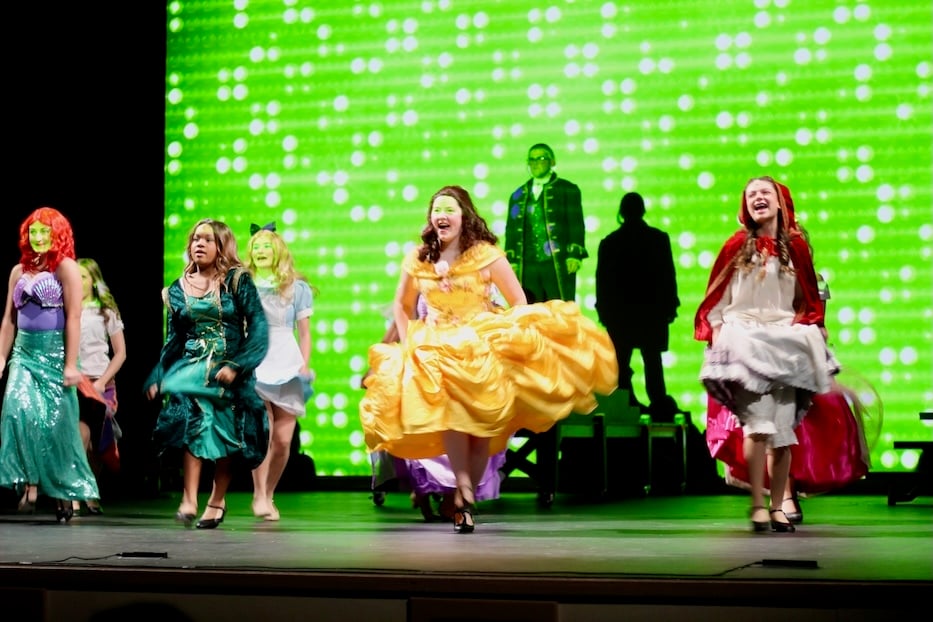
In the process, it becomes not only fun, but edgy enough to remember that some little girl in the audience is going to see this show, and finally second guess that Belle costume she’s been wearing since last Tuesday. Performances run November 7 at 7 p.m. and November 8 at 2 p.m. and 7 p.m. Tickets and more information are available here. The school is also holding a food and resource drive for New Reach in the lobby of the theater.
“I have had the most amazing last three months with some of the most amazing teenagers you’ve ever seen,” Delaney said at an invited dress rehearsal Thursday night, as students from Betsy Ross Arts & Design Academy (BRADA) and St. Martin de Porres settled into the front rows. She noted that students from SHA carry every step of the show, from choreography to acting to technical crew. “It’s such an amazing girl power show.”
“I just love the storytelling,” added senior Aubrey Christopher, who plays Cinderella. “It’s all about sisterhood—these women are helping each other. People in the audience hopefully take that message with them.”

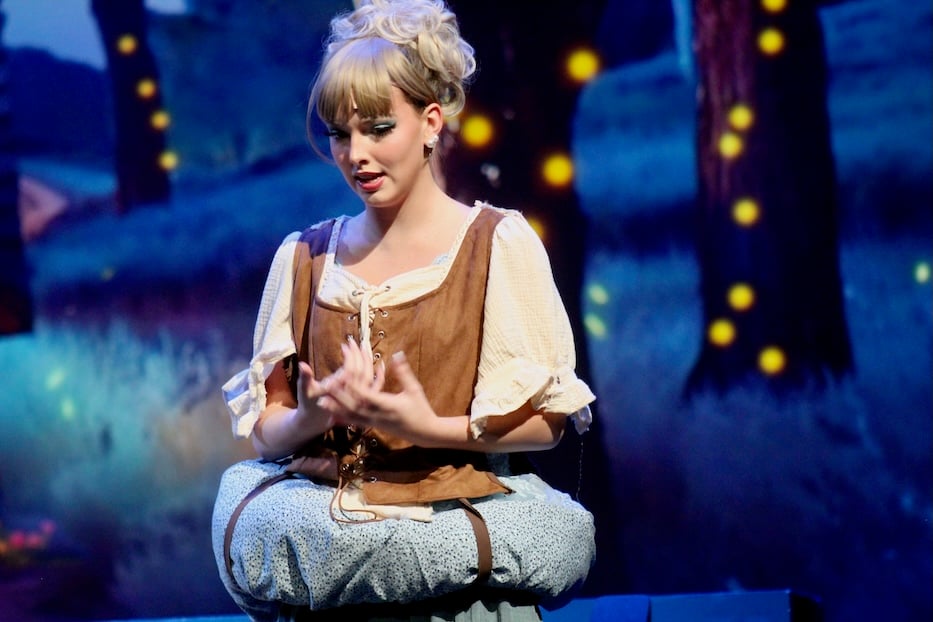
Written by Jon Hartman in 2021, Once Upon A One More Time follows Cinderella (Christopher) back into her fairytale world, which is opened and reopened each night when a reader requests her story. In this universe, princesses live their lives on loop: Snow White (Lucia Sheehan) will take and eat the poison apple again and again, the Little Mermaid (Evangaline Hegan) keeps trading her voice for her legs, Rapunzel (Sophia Dalrymple) still waits longingly at her tower, ready to let her hair down.
Cinderella, of course, cleans the same floor, chats with the same small animals, attends the same tinsel-covered ball, loses the same glass slipper, and meets and marries the same Prince Charming (Jack Vann) every night. Around her, an overbearing Narrator (Chris Serrano) makes sure that no one misses an entrance or exit. It’s a cute nesting doll of a narrative, like a more domesticated Groundhog Day that takes place in a magical realm.
What follows is precipitous, poppy unraveling—and a plot that lends itself surprisingly well to songs like “Oops I Did It Again,” “Womanizer” (performed, propulsively, with dozens of tap shoes), “Scream and Shout” and “Circus.”Cinderella, unfixed by a nagging and unnamable unease, somehow summons the Original Fairy Godmother or O.F.G. (Gabrielle Andreoli, with big Fran Drescher energy), who lends her a copy of Friedan's 1963 tome. Slowly, the other princesses get a whiff of it, in what feels like a 100-level Women’s Studies course in 1990.
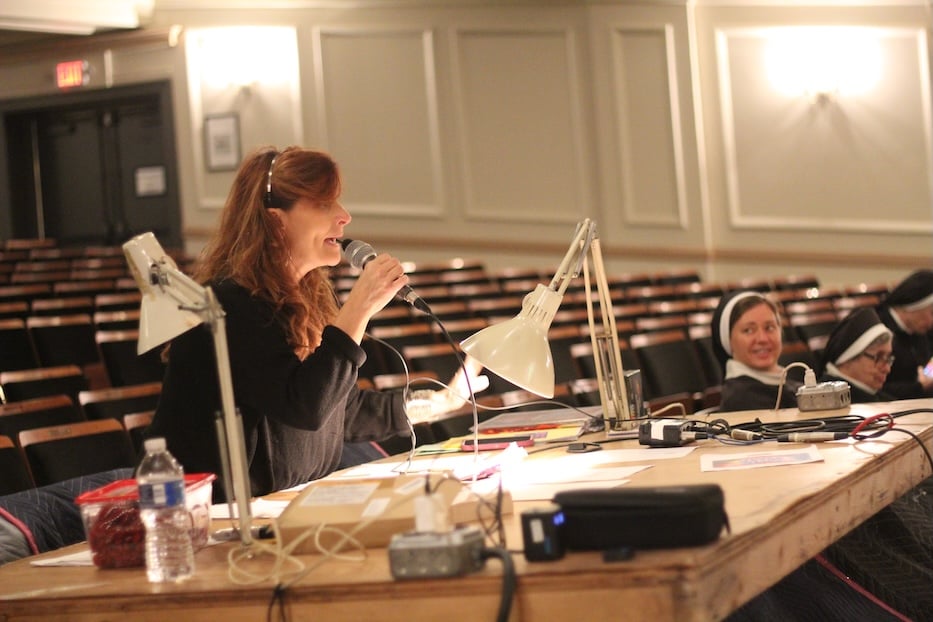
As the anchor of the show, Christopher is a master of the slow reveal, exploring her own discontent in stops and starts, because she understands the size and scope of the system she is challenging. When at a meeting of “Scroll Club” (it’s like book club, except princesses read their own stories), she launches into an adaptation of Spears’ “Lucky” that is surprisingly compelling, whole worlds of longing contained in her face and wide, just-wet eyes. When she wonders aloud if there’s more for her out there, the slightest catch in her voice makes it seem real.
From the audience, this woman, despite the blue cotton, velveteen and tulle in which she is ensconced, becomes relatable. At one moment, she gaslights herself—how bad could this charming world actually be?—and minimizes her own discomfort. At another, she searches for a short cut, not ready for the amount of introspection she’s going to have to do. Who among us hasn’t lived some version of that? When Vann-as-Charming tells her “You’re so much prettier when you smile!” or suggests that a child might ease her existential angst, it’s triggering and funny all at once.
Around her, this cast comes to life, with standout performances from several princesses, the O.F.G., and a few members of Charming’s fleet-footed entourage (a shout out to dancer Dakarai Langley, a student from one of 17 schools whence male actors hail). In and outside of scroll club, Sheehan-as-Snow becomes one to watch, quirky and, well, enchanting as she pieces through, questions and delights in the machinations of feminism for the first time. A quietly villainous Serrano is the stage manager of every actor’s nightmares, a kind of inside joke that he picks up easily, and executes with aplomb.
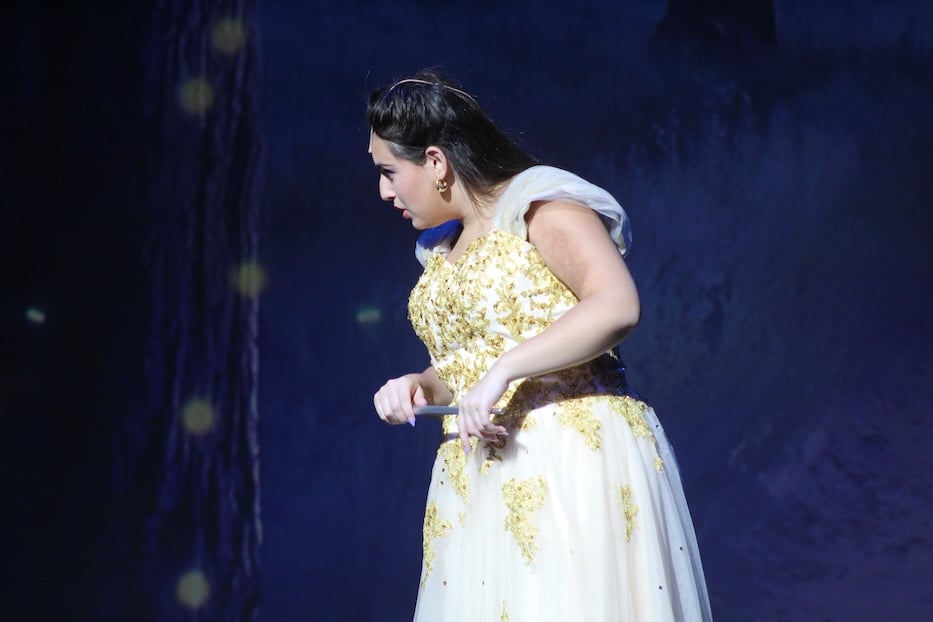
As O.F.G., Andreoli knows exactly how to lean on satire as a balm, with laugh lines that hit extra hard in the current political climate. Maybe her quip that America is a paradise for women isn’t meant to be as bitterly funny as it is—but she sticks the landing, and it’s a zinger that holds weight after the curtain has closed. In at least half the country, this cohort of actors has fewer rights than their mothers did at this age; we laugh because we don't want to cry.
Even as these leading ladies tilt toward revolution, the Evil Stepmother (a clipped, hilarious Persephone Delaney) and her daughters (Olivia Longo and McKenna Brockett) show how women absolutely eat their own, serving a big trad wife energy that is particularly fun to watch. Whether they are tossing rapid-fire lines across the stage , shutting down Cinderella or strutting their way through “Work It” and “Slave 4 U,” Longo and Brockett are a dynamic duo, and the younger Delaney keeps them on their toes.
There are plenty of reasons to not like this musical, chief among them its attachment to a very specific strain of second-wave feminism that excludes Black, queer, and working women. There are questions all over this script about Spears’ genuine agency, as the first iterations of the show took place before the end of her father’s conservatorship in 2022 (it came to Broadway, where it flopped, as fully authorized by Spears in 2023).
It all begs the question: is the most feminist thing one can do not engage with these narratives at all? Like, can we just have a Rama Duwaji Barbie, and an Aubrey Gordon one while we’re at it, and call it a day?
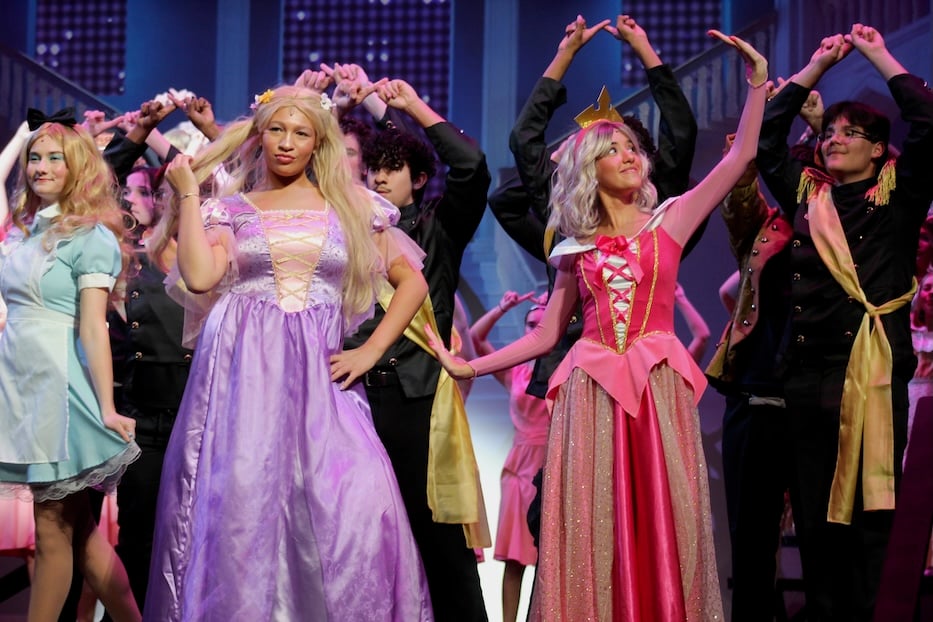
But Disney is a machine, and the heteropatriarchy that is both punch line and a punching bag in the script is not going anywhere. If people (especially parents, especially parents of young girls) are going to have to contend with these narratives—if not in their homes, then in their schools, on their grocery runs, in the toy aisle and at playdates—they might as well have the musical in their back pocket as an antidote.
Friedan is not perfect (nor is Oprah, who is featured in a Kehinde Wiley-esque, beatific portrait that glows from the stage, although she might be a more compelling feminist role model), but she’s a foot in the right door, an opening to texts by Virginia Woolf, bell hooks, Audre Lorde, and Gloria Anzaldúa among many others. If The Feminine Mystique is how we lead young women to Sister Outsider and The Bridge Called My Back, so be it.
In that sense, this cast does exactly what it is supposed to do, and what these young actors conjure up is as delightful, barbed and laughter-laced as it is punchy in all the right places. When Serrano tells Cinderella not to raise her voice, when he cautions that she is becoming “shrill,” “hysterical,” and “difficult,” it strikes exactly the nerve it is supposed to. When O.F.G. outlines the contours of her life after banishment, it shows how much the world keeps spinning after bucking social norms. And when literacy is referred to as “witchcraft” over and over again, in a year that has been devastating for women's education in this country and across the globe, it hits close to home.
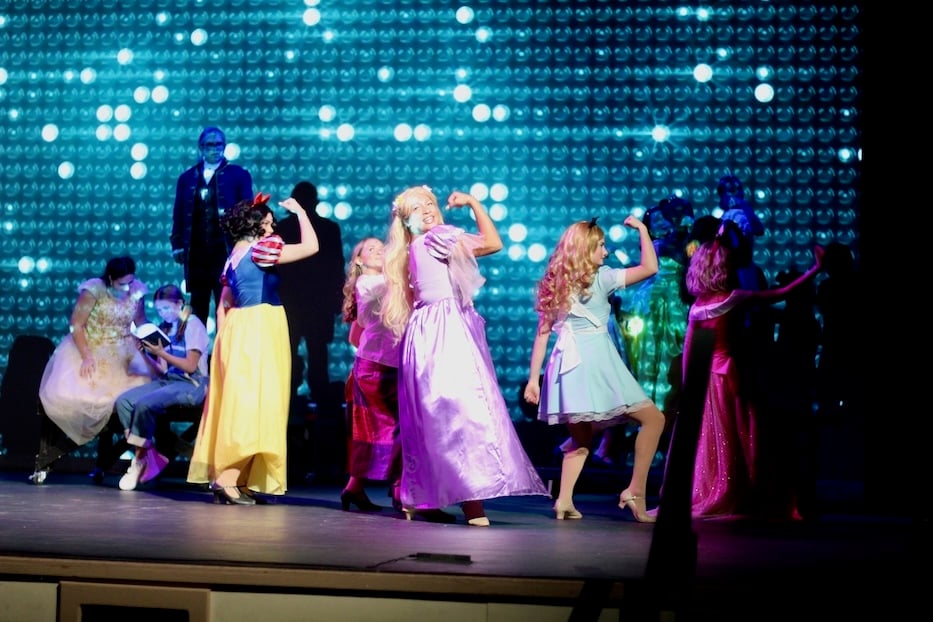
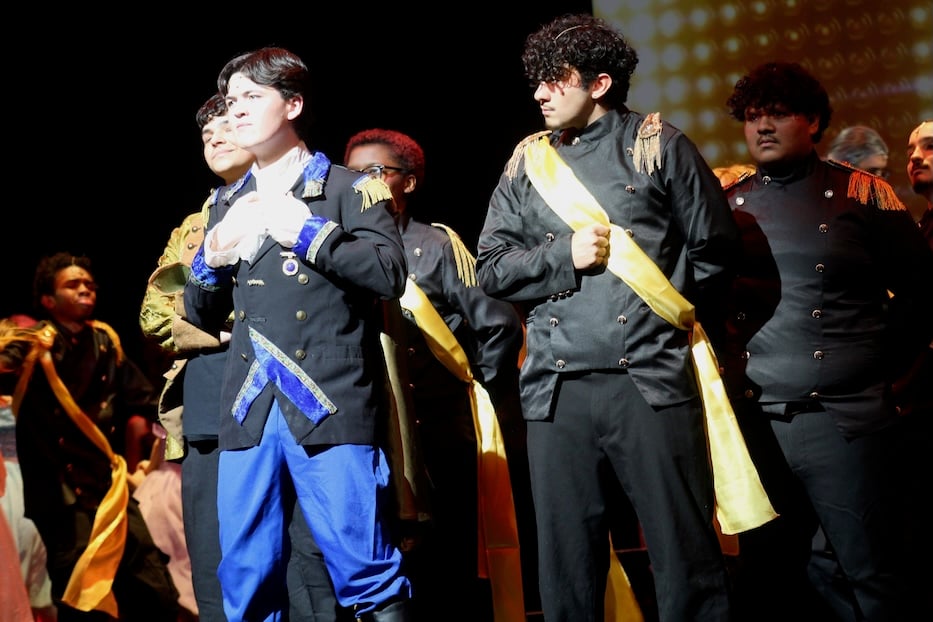
For many of the actors, it’s also become an unexpected reminder of who “Excelsior Women” —that’s a nod to SHA’s motto—really are. At a tech rehearsal Thursday night, Sheehan touched up her hair in a green room beneath the stage, as a fleet of dancers shed their mouse-eared headbands for Act II. As she checked her face in the mirror, she praised the show as one that dovetails with the school’s mission and also meets the moment. Or in the words of O.F.G., “If something’s wrong with your ever-after, it’s up to you to write it.”
“I love how empowered it is, and I love the emphasis on writing your own story,” she said. “It definitely feels very current.”
“We’re strong women,” added Hegan, who plays the Little Mermaid and also assisted on the choreography. “We lead the way and we’re not afraid.”

